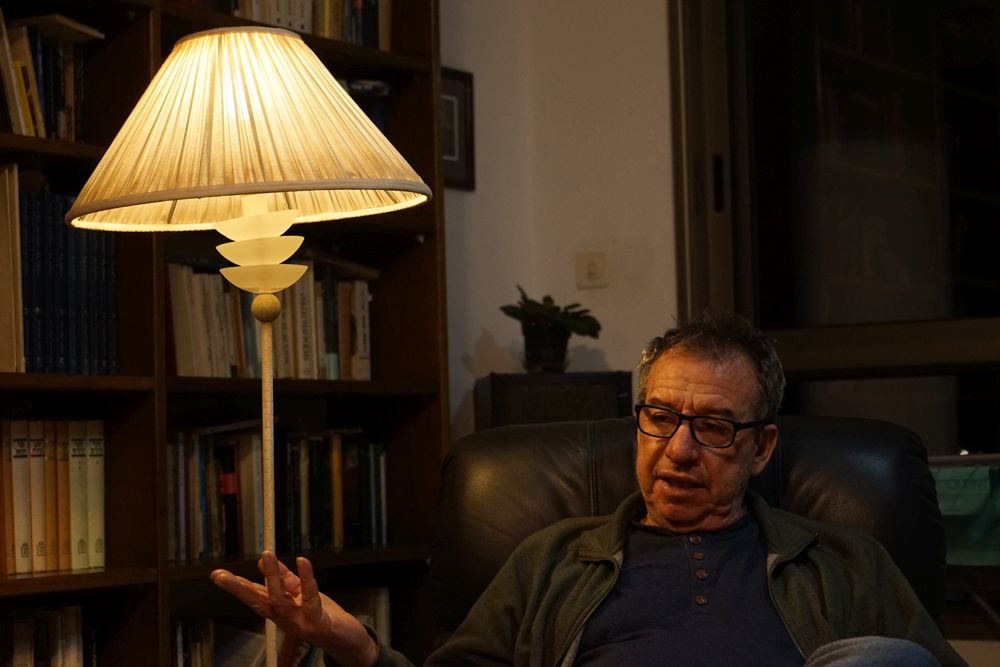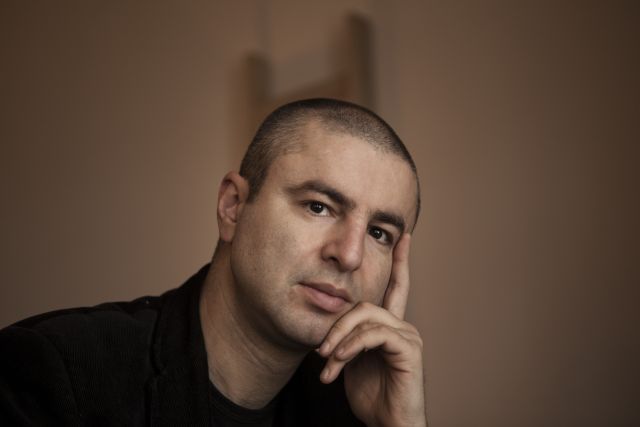Macedonia, Literature, 2016
Nikola
Madzirov

In 1963, an earthquake completely destroyed the Macedonian city of Skopje. Today, Skopje has long been rebuilt into a vibrant urban cosmos. When walking around the city, however, it is still possible to perceive a noticeable silence, a whispered acoustic backdrop teeming with voices. This same meaningful silence is perhaps one of the most striking qualities of the work of Macedonian poet Nikola Madzirov.
Although he was born in 1973, ten years after the earthquake, and not in Skopje, but in Strumica near the Bulgarian border, stories about the earthquakes and the destroyed city are nonetheless an integral part of his childhood memories. Strumica – along with all of Macedonia – is a site of disruption and change. Following the Balkan Wars in 1912/1913, which spelled the end of the Ottoman Empire, rulers and occupiers changed in quick succession due to Macedonia’s geographical division between Serbia, Greece, and Bulgaria. Furthermore, Strumica is located at the fault line dividing Europe from Asia Minor, where tectonic plates constantly press up against each other; the site is, in other words, an emblematic location that embodies the history violently inscribed within it over the course of centuries. Heralding his poetic aims, Madzirov writes in his poem “Revealing” that “History is the first border I have to cross.” All of his poems can be considered decryptions of a world in ruins, although his field of vision encompasses more than just the recent wars that ravaged the Balkans in the twentieth century. A stranger to not only cynicism but also nostalgia, Madzirov’s thought process is constructed out of larger cycles; he has a temporal sense that has fallen out of fashion, in that it evokes a sense of eternity: Strumica is for him the kind of place which the reader can encounter in a work from Ptolemy or Pliny; a place bearing traces of both Byzantium and the Ottomans; a place where you can find medieval churches and monasteries as easily as ancient necropolises and Roman baths. It is above all the legacy of these overlapping layers of the past that Madzirov evokes in his poems. In his work, the present is always a shadow of the past: “We are the remnants of another age,” as he writes in “When Time Ceases.” His poems offer refuge for the “words of condensed absences” (from “The Sky Opens”). With these words, he probes nothing less than the relationship between the absent and present, between the cacophony of History with a capital “H,” and the echo of that which was left out of official memory discourses. “They write oft he fall of empires and epochs but not oft he old man who looks at a toy dug up by a bulldozer.” (“A Way of Existing”). His work caused a sensation when his poetry volume “Remnants of Another Age” was published in Germany in 2011 under the title “Versetzter Stein”; moreover, he is a prominent guest at all of the most important international poetry and literature festivals. Critics praise his ability to empathize, the restrained elegance of his verses, as well as the compact imagery and naturalness of his language. In Macedonia he has long been considered one of the leading lights among contemporary literature. Also known for his literary translations, he has translated writers such as Georgi Gospodinov, Slavenka Drakulić, and David Albahari into Macedonian. In his own words, he refers to himself as the “unwilling descendant” of refugees: his family, like many others, was forced from their home during the Balkan War. This experience shaped more than just his last name: the word “Madzirov” comes from “madzir” or “mujahir,” which means “person without a home, without a home country.” Already translated into over thirty languages, the spiritual home of his poetry is in this liminal space: the notion of being homeless is ubiquitous in and a central theme of his work; his oeuvre announces a kind of spiritual statelessness that he intentionally transforms into a positive quality, namely the ability to change, an openness that goes beyond fixed identities, beyond the need for an ossified notion of belonging: “To open the rusty door of the world,” as he writes in “What Is to Be Done?” “and depart with airy footsteps.” Though sometimes melancholic or even gloomy, his poems take flight with his extremely tender look at the fragility of the world: “Everything is a caress. The snow was folding its wings over the hills, I was laying my palms over your body like a tape measure which unfolds only along the length of other things,” as he writes in “Everything Is a Caress.” Above all, his poems show an unerring, beneficent belief in the continuity of the world, even as it undergoes a sea change. In his poem “When Someone Goes Away Everything That’s Been Done Comes Back,” Madzirov assures us that, “Nothing is ever new. The bus seat is always warm. Last words are carried over like oblique buckets to an ordinary summer fire. The same will happen all over again tomorrow – the face before it vanishes from the photo, will lose the wrinkles.” This poetic distance that he grants to everything in the process of becoming is an advisable way to cope with the twenty-first century, in light of the ghosts of the past that continue to plague it, and the violent wars it continues to fight in the name of religion, origin, and homeland. It appears that the poet is trying to tell us that we have long since arrived on the other banks of time. His lesson: nothing exists independently of us: “The earth I was made from is built into my home,” as he writes in the final words of the volume “Remnants of Another Age.”
Text: Claudia Kramatschek
Translation: Amy Pradell
Versetzter Stein. Poems. Translated from the Macedonian by Alexander Sitzmann. Edition Lyrik Kabinett, Hanser Verlag. Munich 2011.



